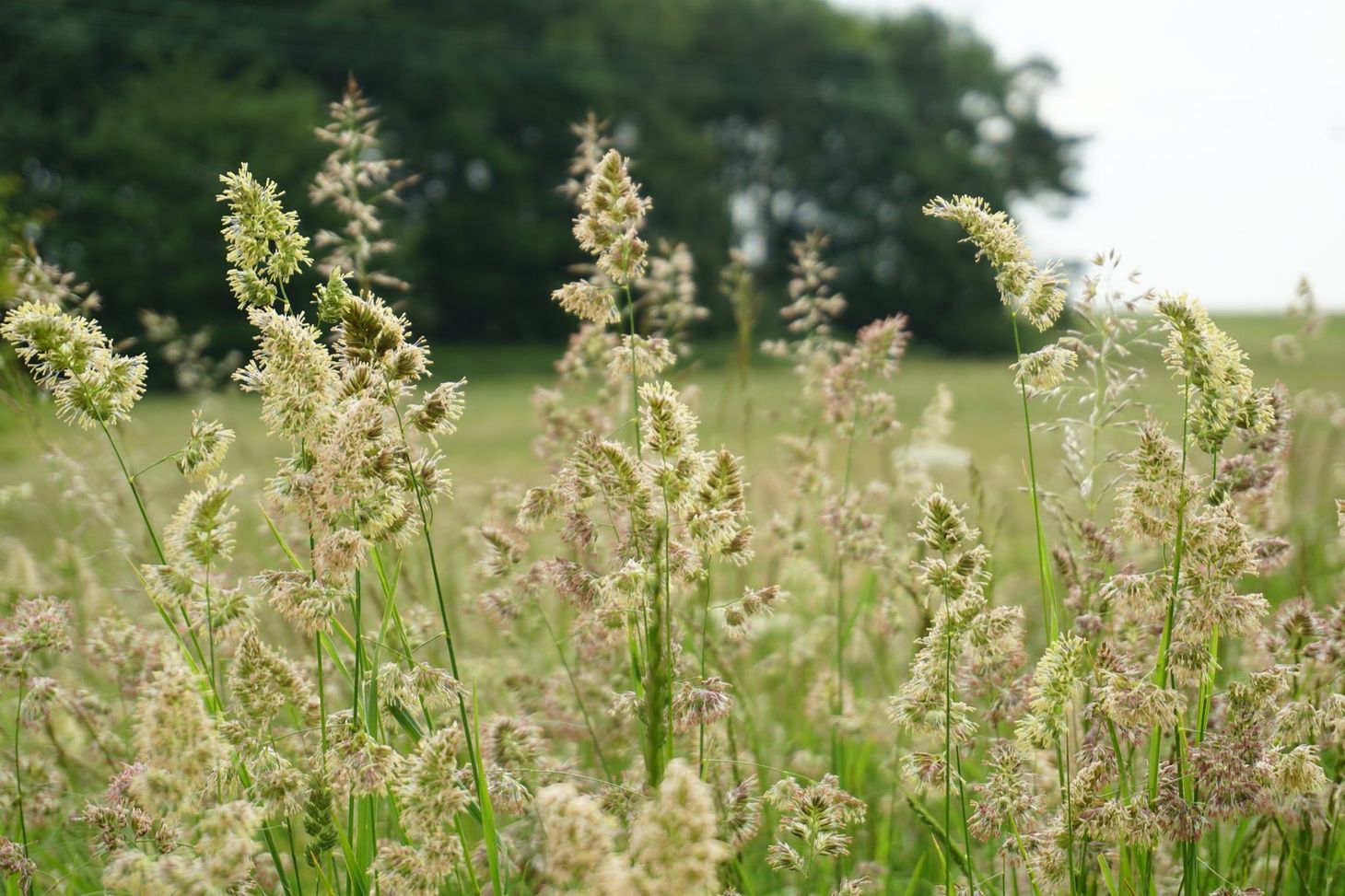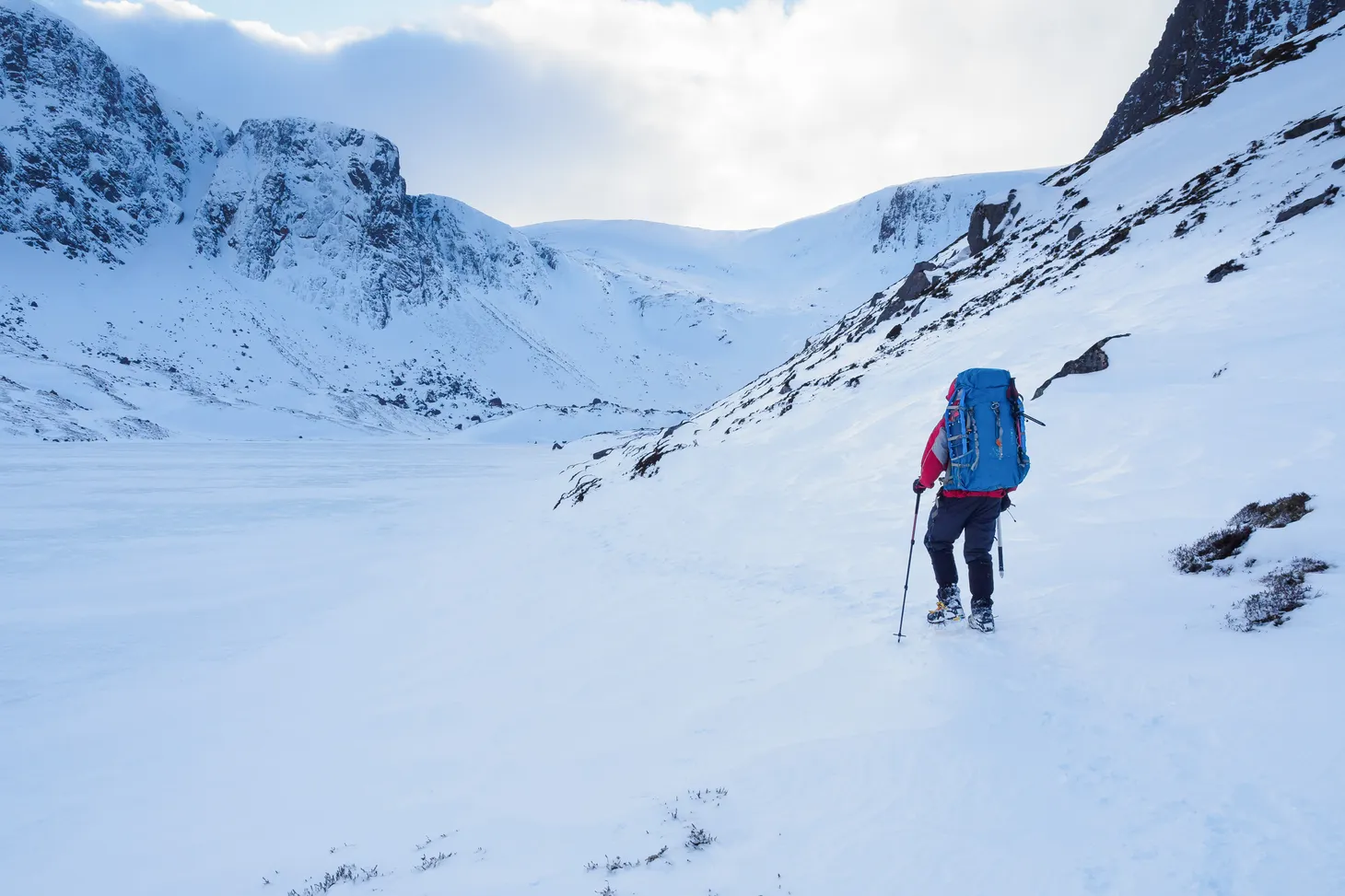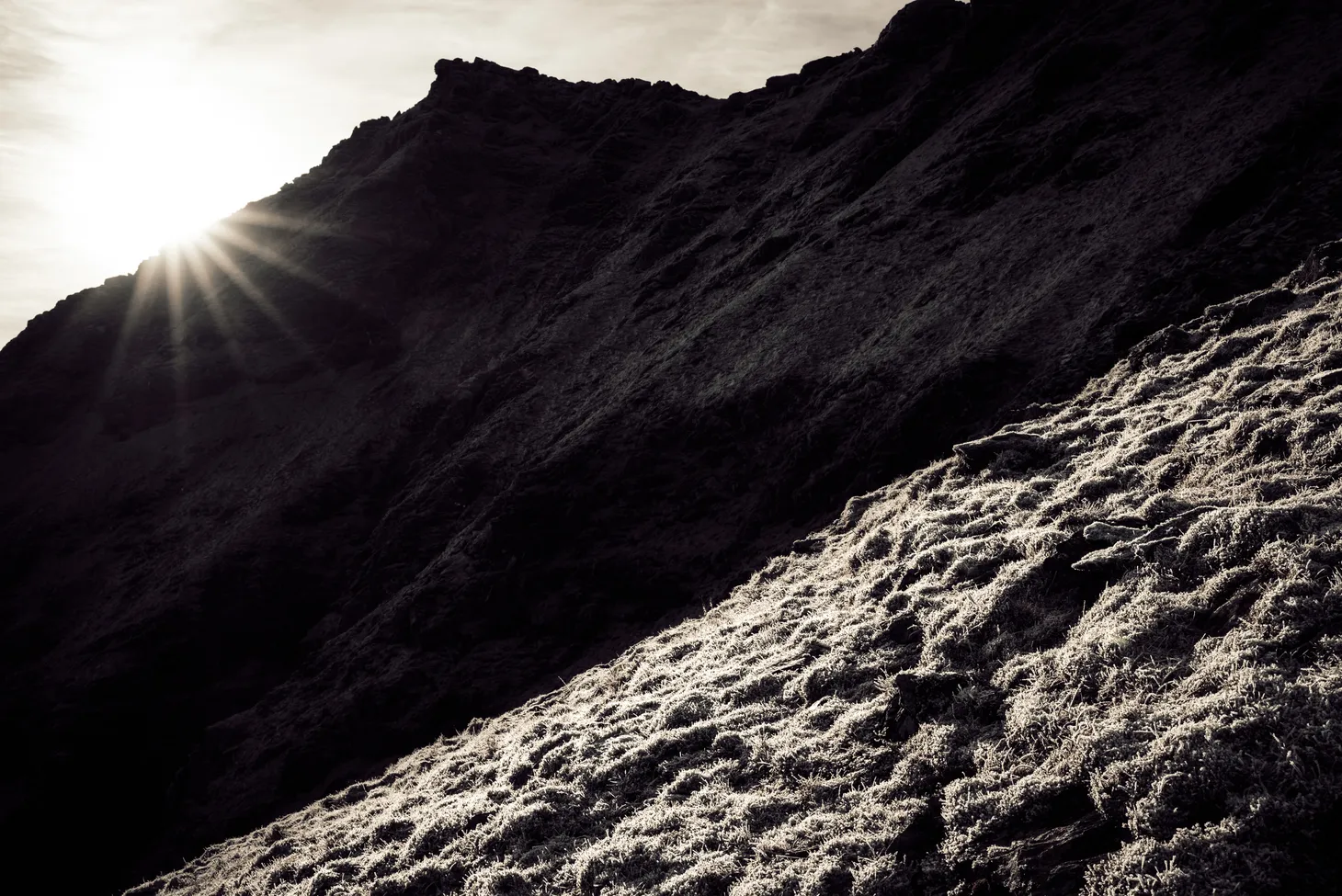Went to mow the meadow

Is this an essay about solastalgia, automation, landscape, history, or just a little tale about a walker and an owl? I don’t know, but I hope you enjoy reading it.
Nine o’clock on a midsummer’s evening, and I hike through farmland that had once been the grounds of a mansion belonging to a branch of the Tennyson family. Somewhere over there – I’m not sure exactly where – once rose a medieval fantasy of battlements, tower, moat, gatehouse and turrets (all constructed at lavish expense in the 19th century, of course). But it was demolished in 1965 and now nothing remains. Now the dusty gravel track I’m slowly climbing up into the hills passes through big fields where colossal agricultural machines are making hay.
I pause for a moment and look into the nearest field. Three massive tractors, each dragging another machine almost as big, are roving back and forth over a nibbled landscape. I watch rotating spindles lift cut hay from the ground and gobble it up. Every once in a while, one of the red beasts excretes a surprisingly large rectangular bale, clinically uniform in shape and just like all the other bales I can see strewn across the field. There’s a smell of summer in the air.
At first, as I watch, I see these things only as soulless monsters of the machine age, nothing human about them at all, just as I can never imagine all the people impossibly encapsulated within the streams of traffic that clog the roads. But then one of the tractors turns in a neat, efficient, computer-optimised curve and the sun’s level glance lights up the cab. There I perceive a man in the driver’s seat, but also, sitting beside him and pointing excitedly out of the window in my direction, a young girl, perhaps five years old. The farmer’s daughter?
The colossi continue in their task and I walk on along the track, my attention turning towards the stand of pines on the horizon above and the way the sun is illuminating the bark in that colour I love so much – bracken in November, the V on each wing of an angle shades moth, my wife’s hair. But I am drawn out of myself in less than a minute. I round a curve in the road, and see a woman and two children sitting on a chequered picnic rug in the shade of an oak. The woman wears a flowing blue dress and has the complexion of someone who has spent her life outdoors. The children are perhaps eight and nine, both girls, both plaiting rushes into cords in a way that suddenly transports me back to my own childhood. On the picnic rug I see a bottle of Tesco lemonade, plastic mugs, paper plates, and a Pyrex dish containing a half-devoured pie.
The woman smiles at me for a moment, freckles creasing, then waves across the field to the red monsters working over their land. The machines do not respond, but perhaps one of the humans sees the wave; I have no way of knowing, and neither does the woman. I stride on. In a moment the vignette is gone and I’m alone again.
Ten minutes later, I’m still plodding up the lane when I hear a rumble behind me and look back to see a convoy of all three red tractors bearing down on me in a great confusion of dust. The tractor in front slows as it passes, and I step up onto the verge, feeling the machine-cut grass and nettle stubble poking the soles of my shoes. I look back just in time to see that there are three people in the cab of the first tractor: the man driving it, the woman in the blue dress, and one of the younger children. All but the driver are looking at their smartphones and don’t see me; the driver nods.
Soon the tractors have gone and the evening gets on with the business of fading into the comfortable twilight of June. I reach that stand of pines at the top of the hill. The light has dwindled on their trunks now, but I see that they’re old trees, cracked and irregular in the way that all the best trees are, dead branches left to lie and enrich the world where they have fallen.
This is a good place to pause and look back on the delicate folds of the lands below, stretching all the way to the unnamed stream I’d crossed (unnamed on the map, at least) and the village beyond. The light picks out details in the fine clarity that can only be glimpsed early or late at this time of year.
Did you know that I send out weekly newsletters on the outdoors, writing, and outdoor writing? Subscribe here to receive my Pinnacle Newsletter.
As I pause, for a moment I fancy I hear someone start to sing ‘One man went to mow, went to mow the meadow…’, the words carried up to me on the breeze, but there is no one left in the empty landscape down there. The machines come, as they inevitably do, perform their strange dance that has so recently supplanted human industry and culture, and when the machines move on they leave silence behind them.
As I stand there in the gloaming, I try to pin down this sudden fluttering emotion that washes over me. Is it the momentary loneliness that sometimes springs upon even the most solitary long-distance walker, as if to remind us that the churr of the nightjar and the stars that nobody else sees aren’t quite enough to be completely happy? Is it sadness for a long-vanished culture I never even knew? Is it the knowledge that layers of human lives from the Tennysons back to the Palaeolithic are forgotten now, and the red machines that plant, harvest and plant again are oblivious to the hundred thousand moments of happiness, struggle and sorrow that people have experienced on this very land? Is it an echo of the greater tragedy, as yet not quite understood, ricocheting back through time to pass like a neutrino through my skull and plant some trace of itself there?
I don’t know anything really, but as I lean on my trekking poles and consider these questions I hear the yawp of a barn owl and look up to see it in the crook of the pine above me. Wind ruffles its feathers and I see the glow of the sun’s last moments reflected in its eyes. Perhaps its ancestors hunted these meadows before the machines came, before the Tennysons constructed their faux-medieval pile, before teams of men with scythes mowed the meadow and the woman and children came out to sing with them and drink lemonade in the cool of the evening. Perhaps before people waited in the tangled dark on the edge of the forest for the elk or the bison to pass by this spot.
I give a nod to the owl and hike on.
Alex Roddie Newsletter
Subscribe here to receive my occasional personal newsletter in your inbox. (For the fun stuff, please consider subscribing to Alpenglow Journal instead!)




